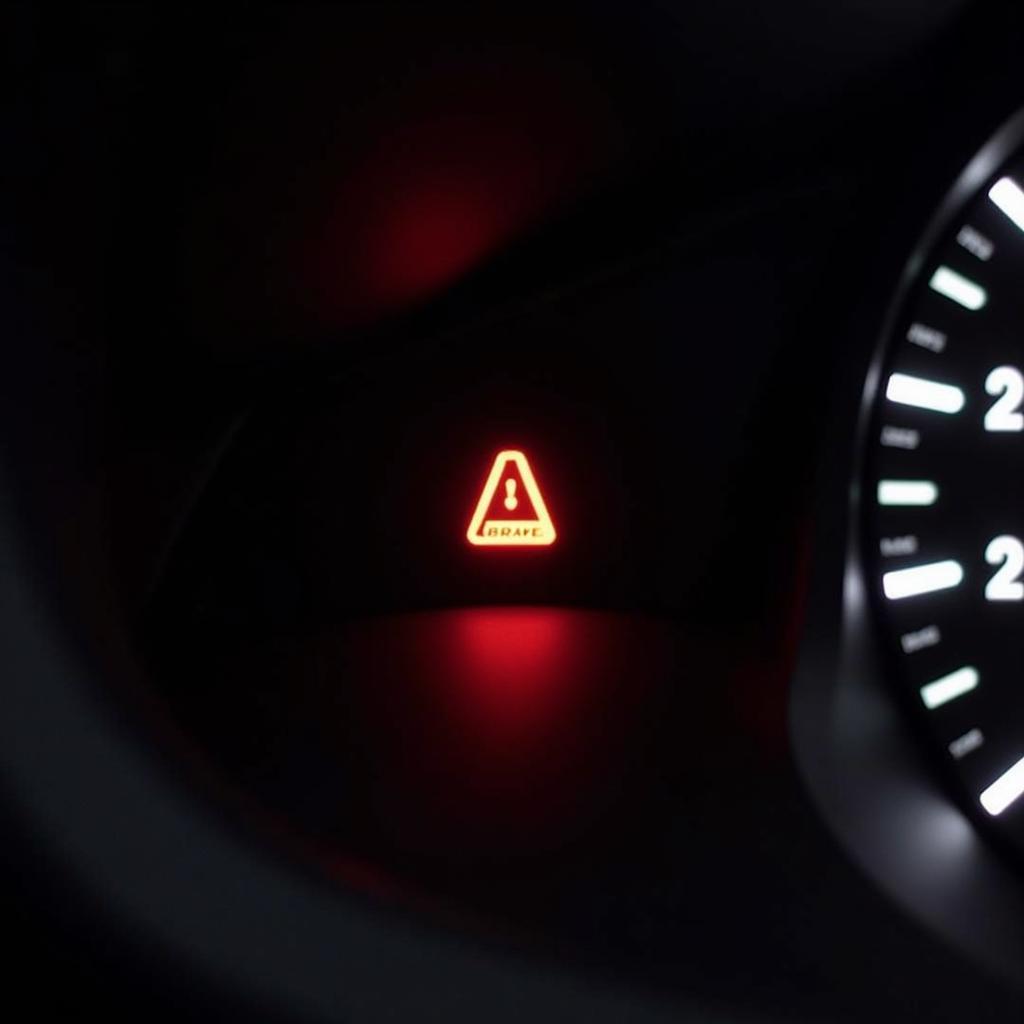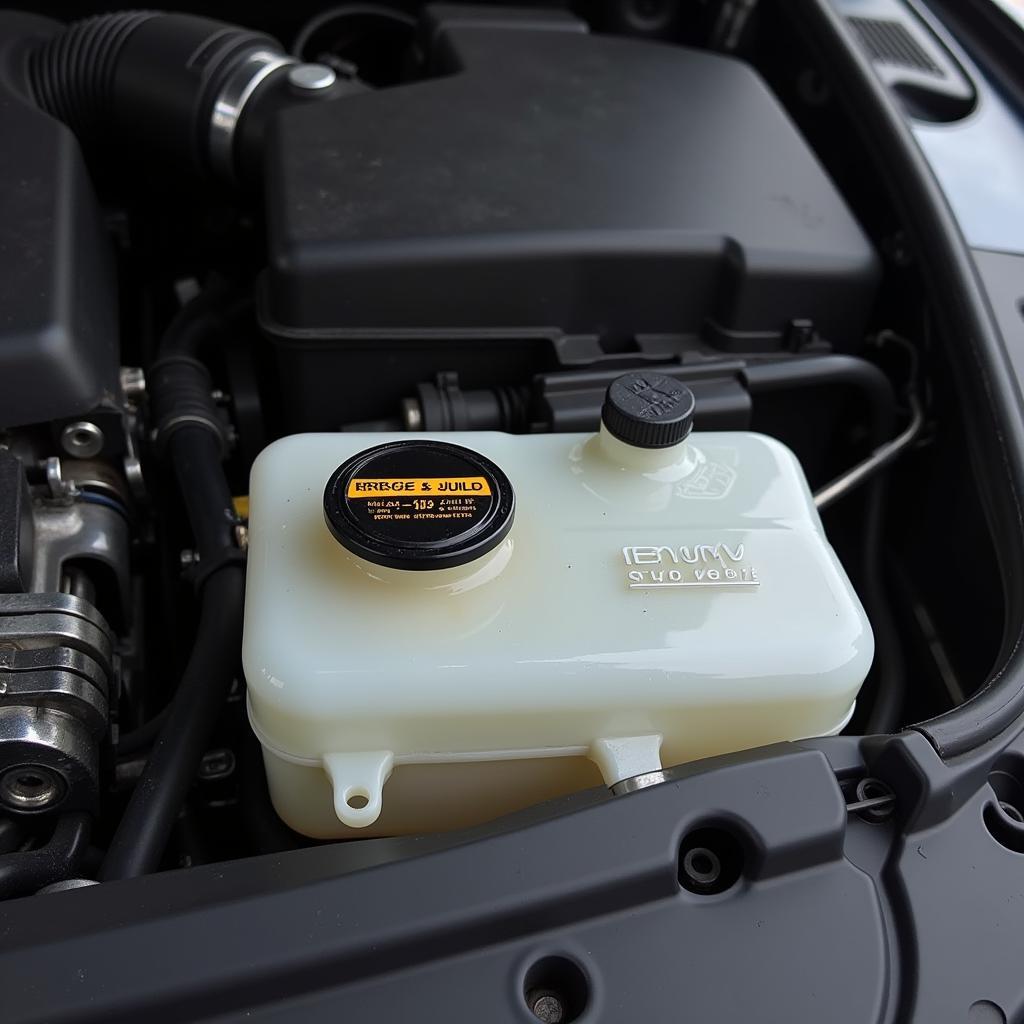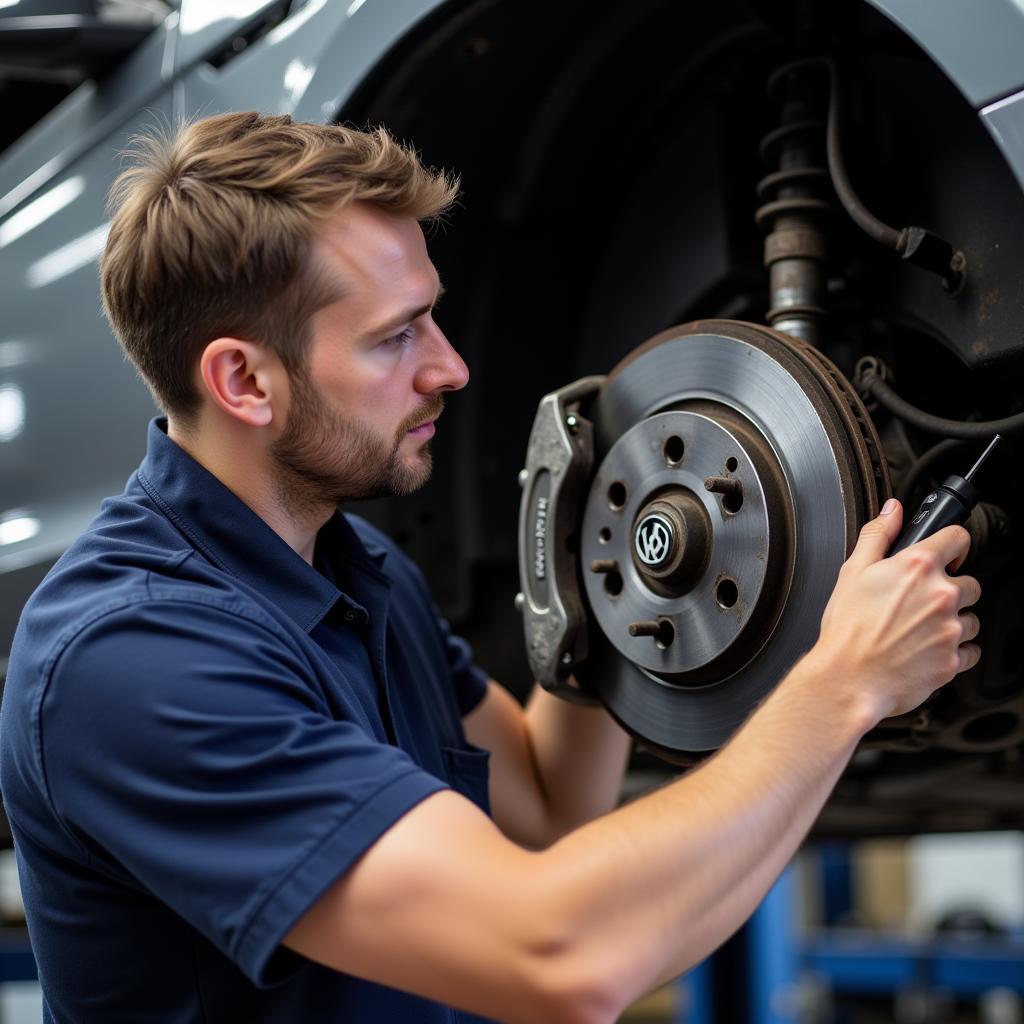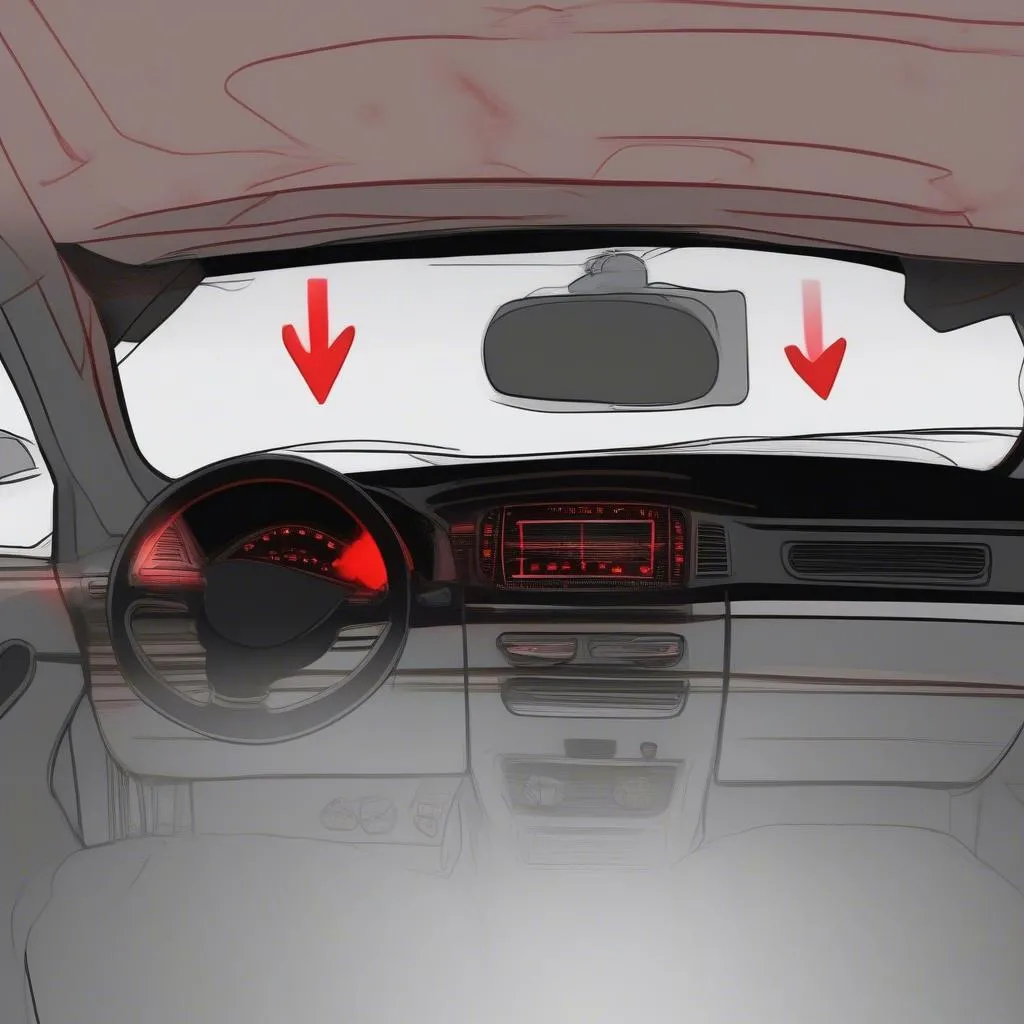The brake warning light on your Volkswagen Passat illuminating can be a nerve-wracking experience. It signals a potential issue with your vehicle’s braking system, requiring immediate attention to ensure your safety and that of your passengers. While a visit to a qualified mechanic is always recommended for a definitive diagnosis, understanding the common causes of this warning light can empower you to take the right steps.
This comprehensive guide delves into the intricacies of the Passat brake warning light problem, offering valuable insights into potential causes, troubleshooting steps, and solutions.
Understanding Your Passat’s Brake Warning System
The brake warning light is a crucial component of your Passat’s safety system, designed to alert you to potential issues within the braking system. It typically illuminates in red or amber, depending on the nature and severity of the problem. Here’s a breakdown:
-
Red Brake Warning Light: This typically signals a critical issue requiring immediate attention. It could indicate low brake fluid, a malfunctioning ABS system, or a problem with the electronic parking brake.
-
Amber Brake Warning Light: This often suggests an issue with the electronic stability control (ESC) or traction control system. While not as immediately critical as a red light, it still warrants attention to prevent potential hazards.
 Passat Dashboard with Illuminated Brake Warning Light
Passat Dashboard with Illuminated Brake Warning Light
Common Causes of a Passat Brake Warning Light
A variety of factors can trigger the brake warning light in your Passat. Understanding these common causes can help you narrow down the potential problem and take appropriate action.
-
Low Brake Fluid: One of the most frequent culprits is low brake fluid. Over time, brake fluid naturally depletes, and a leak in the system can exacerbate this issue.
-
Worn Brake Pads: Brake pads have a finite lifespan and gradually wear down with use. Worn brake pads can trigger the warning light as they reach a critical thickness.
-
Faulty Brake Sensors: Your Passat utilizes sensors to monitor various brake components, including brake fluid levels and pad thickness. A malfunctioning sensor can send erroneous signals, causing the warning light to illuminate.
-
ABS Module Issues: The Anti-lock Braking System (ABS) is a crucial safety feature in modern vehicles like the Passat. Problems within the ABS module, such as faulty sensors or electrical issues, can trigger the brake warning light.
-
Parking Brake Problems: If the parking brake is not fully disengaged or there’s an issue with the parking brake switch, it can activate the warning light.
 Passat Brake Fluid Reservoir with Low Fluid Level
Passat Brake Fluid Reservoir with Low Fluid Level
Troubleshooting a Passat Brake Warning Light
While a professional diagnosis is recommended for a definitive assessment, you can perform some basic troubleshooting steps to gain insights into the problem:
-
Check Brake Fluid Level: Safely park your Passat on a level surface and allow the engine to cool. Locate the brake fluid reservoir under the hood and inspect the fluid level. If it’s below the “MIN” mark, add brake fluid recommended by Volkswagen.
-
Inspect Brake Pads: If you’re comfortable with basic car maintenance, you can visually check the brake pads through the wheel spokes. Look for significant wear or thinning. If the pads appear excessively worn, it’s time for a replacement.
-
Check Parking Brake: Ensure the parking brake is fully disengaged. If it’s stuck or feels loose, there might be an issue with the cable or mechanism.
-
Scan for Diagnostic Trouble Codes (DTCs): If you own an OBD-II scanner, you can connect it to your Passat’s diagnostic port to retrieve any stored error codes related to the braking system. These codes can provide valuable clues about the underlying problem.
When to Seek Professional Help
While basic troubleshooting can provide some insights, it’s crucial to seek professional help from a qualified mechanic if:
- The brake warning light remains illuminated even after adding brake fluid.
- You notice any unusual noises or vibrations when braking.
- Your Passat’s braking performance feels compromised.
- You’re uncomfortable performing any of the troubleshooting steps mentioned above.
Attempting to diagnose and repair complex brake system issues without proper knowledge and expertise can be dangerous. A qualified mechanic possesses the specialized tools, knowledge, and experience to accurately diagnose and resolve the problem, ensuring your safety on the road.
 Mechanic Inspecting the Brake System of a Volkswagen Passat
Mechanic Inspecting the Brake System of a Volkswagen Passat
Preventing Future Brake Warning Light Issues
Taking proactive measures can go a long way in preventing future brake warning light problems and ensuring the longevity of your Passat’s braking system:
-
Regular Brake Fluid Flushes: Volkswagen recommends flushing your Passat’s brake fluid every 2 years or as specified in your owner’s manual. Fresh brake fluid helps maintain optimal braking performance and prevents corrosion within the system.
-
Timely Brake Pad Replacements: Adhere to the recommended brake pad replacement intervals outlined in your Passat’s maintenance schedule. Timely replacements prevent damage to rotors and ensure consistent braking performance.
-
Routine Brake Inspections: Schedule regular brake inspections with a trusted mechanic, especially if you frequently drive in demanding conditions such as stop-and-go traffic or hilly terrain.
Conclusion
The brake warning light in your Volkswagen Passat is a crucial safety feature that should never be ignored. While simple issues like low brake fluid can often be addressed with basic troubleshooting, more complex problems require the expertise of a qualified mechanic. By understanding the common causes, taking proactive measures for prevention, and seeking professional help when necessary, you can ensure the optimal performance and safety of your Passat’s braking system for miles to come.


